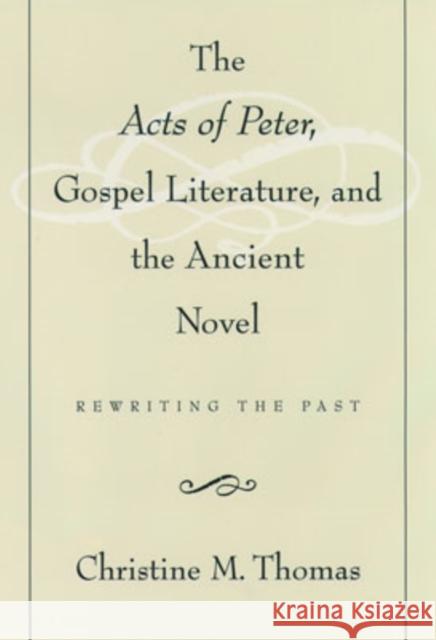The Acts of Peter, Gospel Literature, and the Ancient Novel: Rewriting the Past » książka
topmenu
The Acts of Peter, Gospel Literature, and the Ancient Novel: Rewriting the Past
ISBN-13: 9780195125078 / Angielski / Twarda / 2003 / 200 str.
The Acts of Peter, one of the Apocryphal Acts of the Apostles that detail the exploits of the key figures of early Christianity, provides a unique window into the formation of early Christian narrative. Like the Gospels, the Acts of Peter developed from disparate oral and written narrative from the first century. The apocryphal text, however, continued to develop into a number of re-castings, translations, abridgements, and expansions. The Acts of Peter present Christian narrative in an alternate universe, in which canonization did not halt the process of creative re-composition.
Now, in this groundbreaking book, Thomas examines the sources and subsequent versions of the Acts, from the earliest traditions through the sixth-century Passions of the Apostles, arguing the importance of its "narrative fluidity": the existence of the work in several versions or multiforms. This feature, shared with the Jewish novels of Esther and Daniel, the Greek romance about Alexander the Great, and the Christian Gospels, allows these narratives to adapt to accommodate the changing historical circumstances of their audiences. In each new version, the audiences' defining conflicts were reflected in the text, echoing a historical consciousness more often identified with primary oral societies, in which the account of the past is a malleable script explaining the present. Although the genre most closely comparable to these works is the ancient novel, their serious historical intent separates them from the later, more self-consciously fictive novels, and maintains them within the realm of the earlier historical novels produced by ethnic subcultures within the Roman empire.










